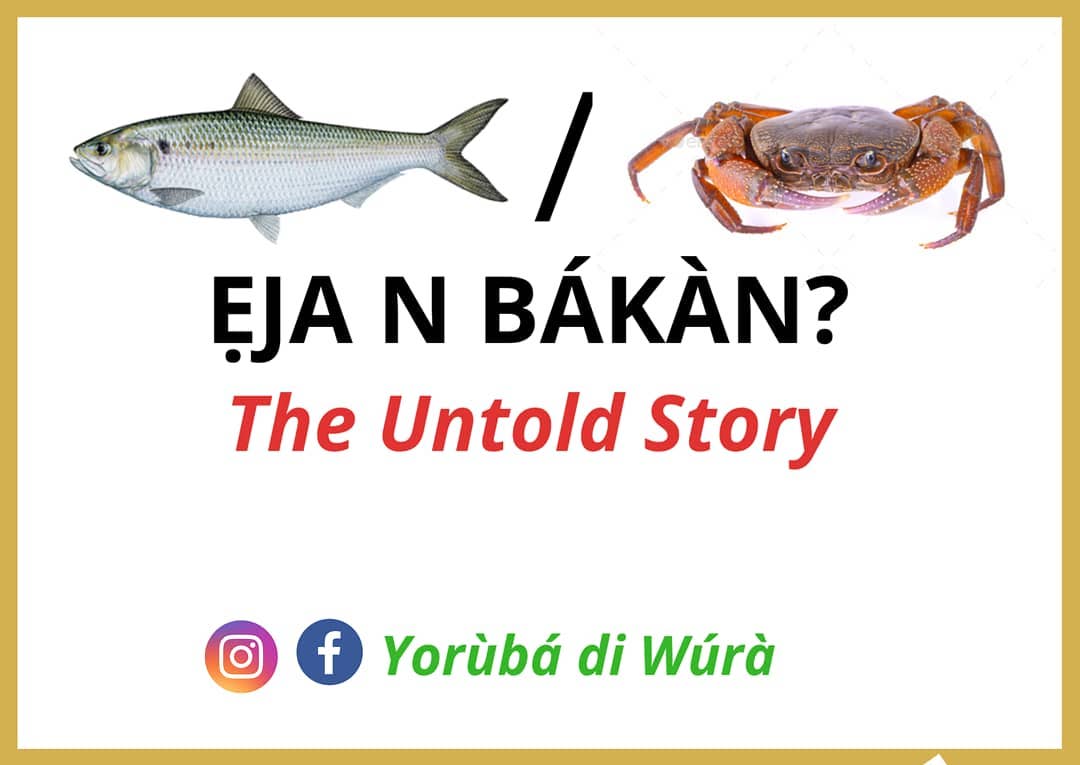ẸJA N BÁKÀN? THE UNTOLD STORY

The concept of Ẹja n bÁkàn? Is a way of making an inquiry to know whether a situation is negative or positive. It is a story centred on two deities: Ọ̀rúnmìlà (the deity of wisdom) and Olókun (the sea deity). The two deities were known to be intimate friends in the primordial era.
.
Olókun, whose abode is in the sea borrowed iyùn beads (very expensive beads) from Ọ̀rúnmìlà during her festive period and refused to return it back to Ọ̀rúnmìlà, the rightful owner.
.
After a long time that the beads had been in the custody of Olókun, Ọ̀rúnmìlà thought of sending Ẹja (fish), one of Olókun’s offsprings to get his beads from Olókun. Ẹja hastily went on that errand. It was so unfortunate that Ẹja rudely approached Olókun. She became infuriated and refused to give the beads to Ẹja.
.
Ọ̀rúnmìlà was seriously bothered when he realised that Ẹja did not come with the beads, which he also needed for his festival. He now decided to send Akàn (crab), another offspring of Olókun. Akàn gently walked down to Olókun and patiently demanded for the beads.
.
Olókun was so delighted at the approach of Akàn. She gave the beads to him and sent a message to Ọ̀rúnmìlà that whenever he needs anything from her, he should always send Akàn and not Ẹja, the rude child. Ọ̀rúnmìlà was very happy after collecting his beads.
.
Since then, Ẹja had been labelled negative, while Akàn had been tagged positive in Yorùbá belief system. So, whenever someone embarks on a project, and people want to make an inquiry about the success or failure of the project, they will ask: Ẹja n bÁkàn? If he succeeded in the project, he will reply: ‘Akàn ni’ meaning it is positive. But if otherwise, he will reply thus: ‘Ẹja ni’ meaning he didn’t succeed in the project.
© Yorùbá di Wúrà (2020)





1 Comment
Thanks for your blog, nice to read. Do not stop.